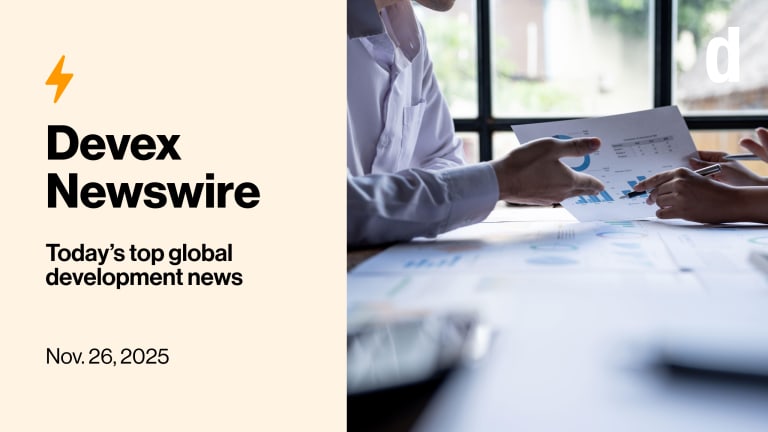
We are at a critical juncture in the pandemic. Vaccine supplies are hotly contested. A devastating third wave of infections is sweeping much of the world. The task of managing complex vaccine logistics and administration to citizens is daunting, especially for governments that are only just beginning to use digital services.
That’s why along with UNICEF, the U.N. Tech Envoy, and multiple others, I am calling for vaccine management tools to be made open source. This would allow all governments, and others, to use these technologies and, most importantly, adapt them to meet their specific needs.
The ongoing COVID-19 crisis presents an opportunity to establish and expand digital solutions way beyond the realm of vaccination. The only way to do this at the scale and speed needed is through the advancement of digital public goods.
Indeed, Norway co-founded the Digital Public Goods Alliance in 2019 because of the great promise we see for such technologies to help address some of the most urgent global challenges the world is facing.
DPGs are open-source software. Content and data, ranging from early-grade reading applications for children to complex systems that governments can use to allocate unique digital identities to populations. DPGs can cut costs for lower-income countries by improving access to state-of-the-art and adaptable core technologies.
DPGs can help us be better prepared for future eventualities. Just as importantly, they have the potential to transform the prospects of countries throughout the world, and usher in a new era of international cooperation.
—They are potentially lifesaving for those who can benefit from them, and are cost-effective for donors as they reduce fragmentation and duplication. But while global funding for DPGs is growing, they will not achieve maximum impact without significant additional financial support.
DPGs have also proven themselves invaluable during the pandemic. Take as an example, the District Health Information System 2, or DHIS2, which is led by the University of Oslo. Several countries use it as a national health information management system.
For example, in Sri Lanka, within two days of confirming the first case of COVID-19, local developers piloted a track-and-trace system, which is now available as a generic tool that several countries have also adopted.
With open-source software, a small team can make something, and the rest of the world can adapt it and use it. This is of key importance for a country’s long term sustainable development, and also enables countries to respond swiftly in the face of crisis, such as the pandemic.
Digital identification systems represent the digital backbone of any country and are therefore the most important starting point for digital transformation journeys. The McKinsey Global Institute estimates that such platforms can unlock a value of between 3% and 13% of a country’s gross domestic product.
In 2020, Norwegian Agency for Development Cooperation, or Norad, became a co-funder of the Modular Open Source Identity Platform, along with the Bill & Melinda Gates Foundation, the Omidyar Network, and Tata Trusts.
MOSIP is a modular and open-source identity platform that helps governments implement a digital, foundational ID in a cost-effective way. Since its launch in 2018, MOSIP has seen rapidly growing demand from a range of countries around the world.
Morocco and the Philippines are currently implementing digital identity systems based on MOSIP. The platform will mean these countries, and others interested in adopting it, can deliver public services more accurately and efficiently, and allow more people to benefit from essential services like digital payments, which rely on accurate identification of transacting parties.
The Norwegian government is spending $15 to $20 million this year on DPGs, including DHIS2 and MOSIP, and on the Digital Public Goods Alliance itself, as a key pillar of digital transformation within Norwegian development policy. I urge other governments and philanthropic funders to join us by supporting the development and implementation of digital public goods.
This should also include assisting countries to develop appropriate regulatory frameworks and technical capacity for successfully deploying and managing DPGs over time. Digital public goods are a cost-effective way to direct development cooperation toward the future, and enable us to reach the Sustainable Development Goals.
Despite the current spikes in COVID-19 infections around the world, we all hope the end of the crisis is nearing. But we know that this pandemic is probably a dress rehearsal. The threat of fast-spreading pathogens will always be with us. DPGs can help us be better prepared for future eventualities. Just as importantly, they have the potential to transform the prospects of countries throughout the world, and usher in a new era of international cooperation.








